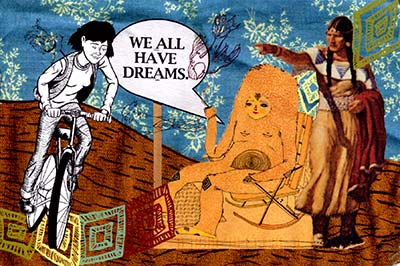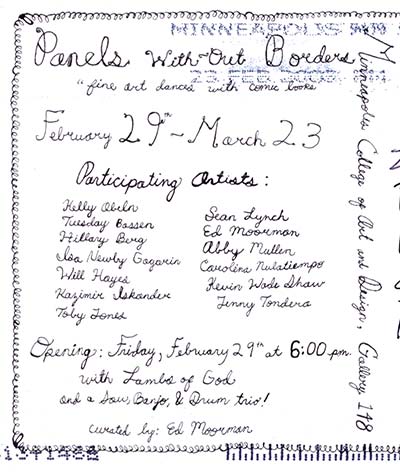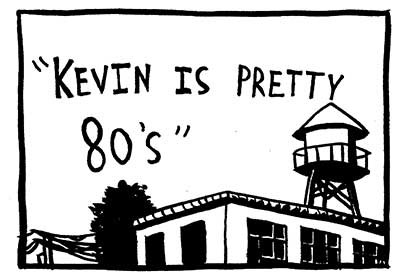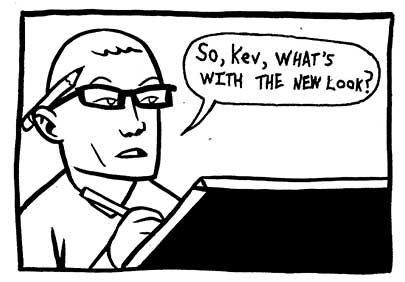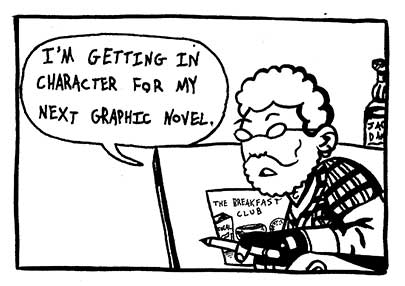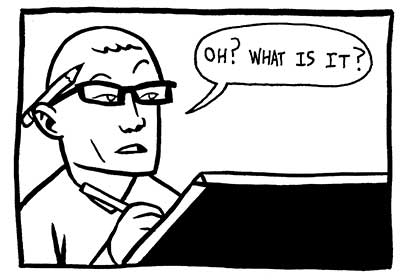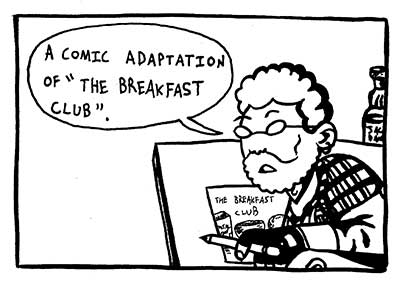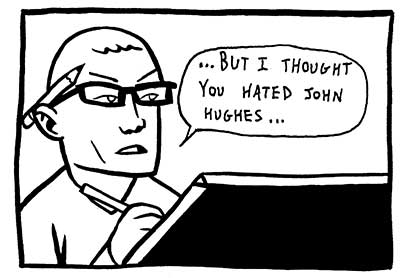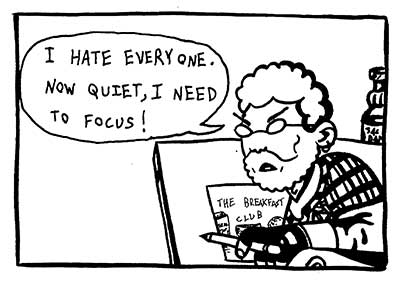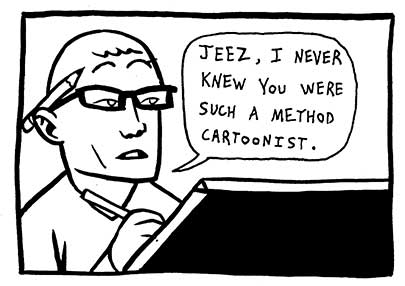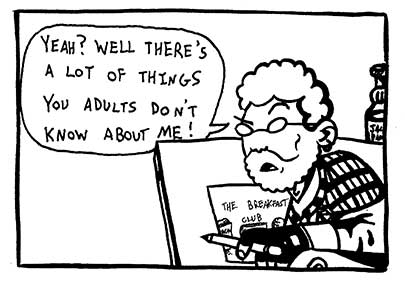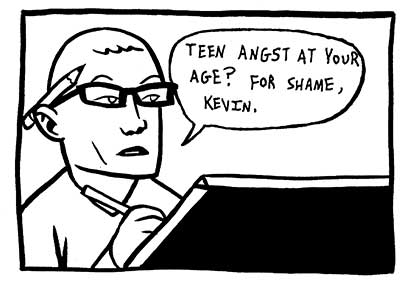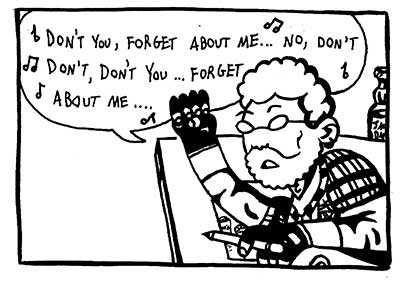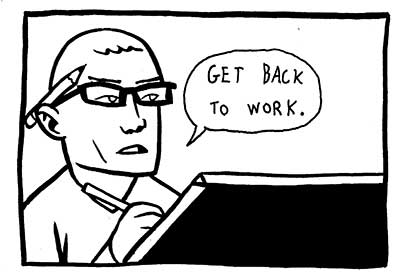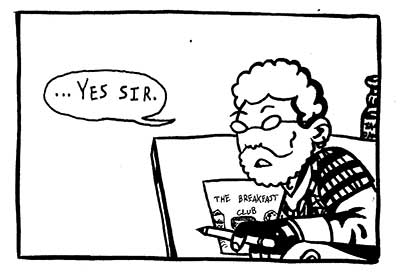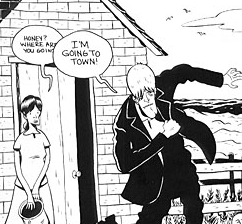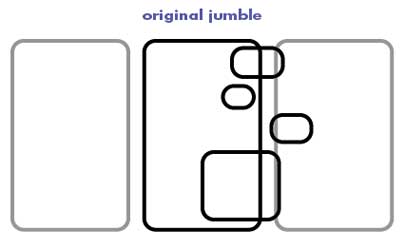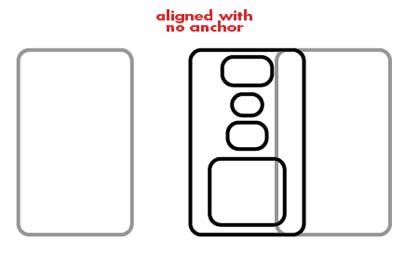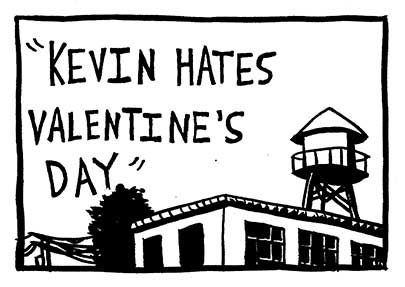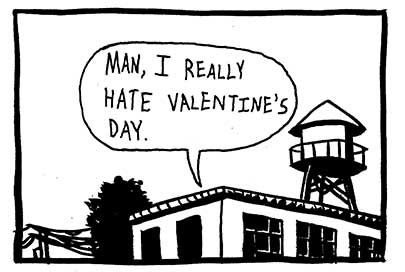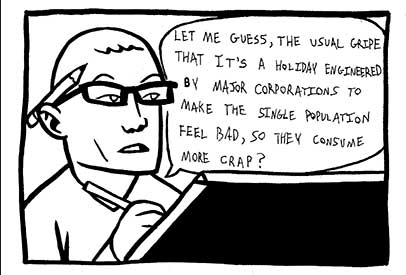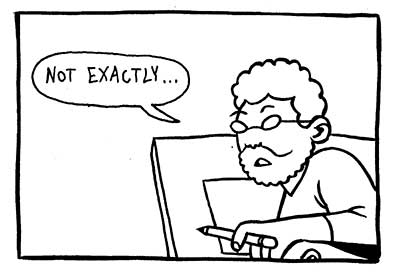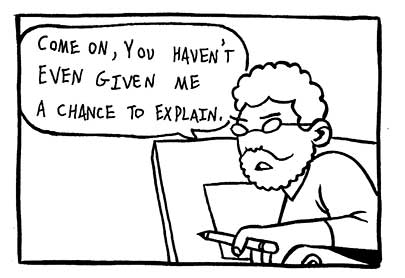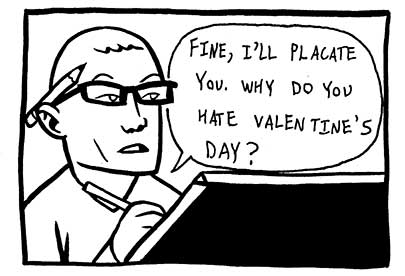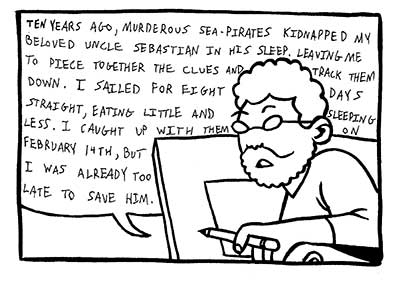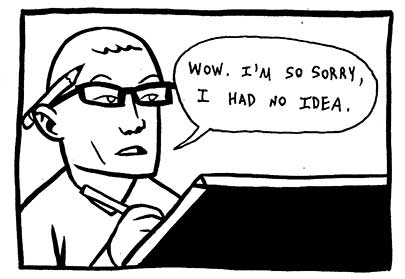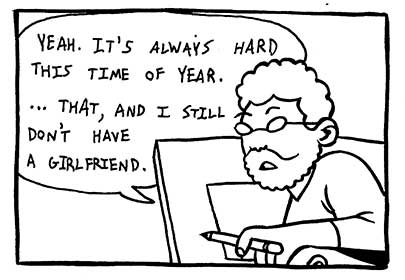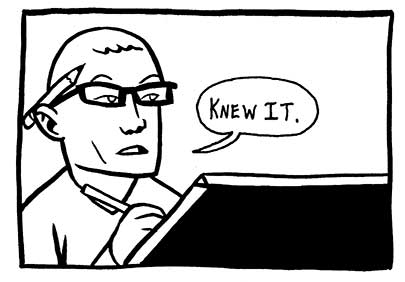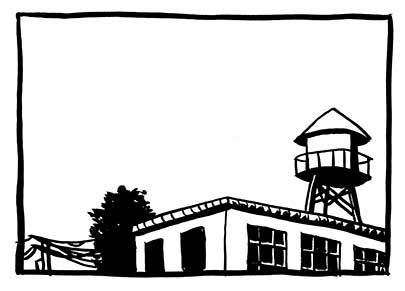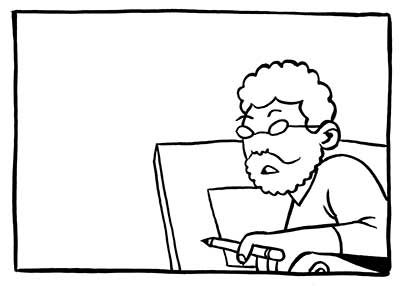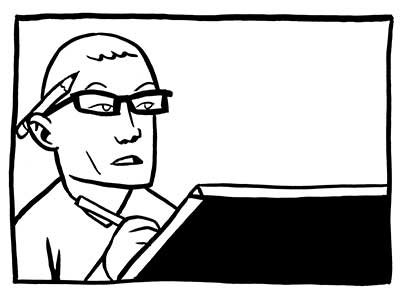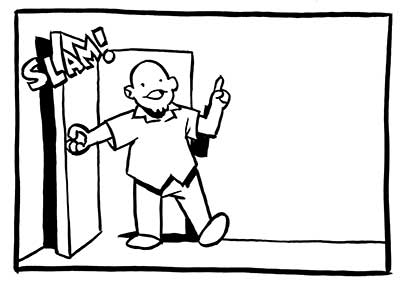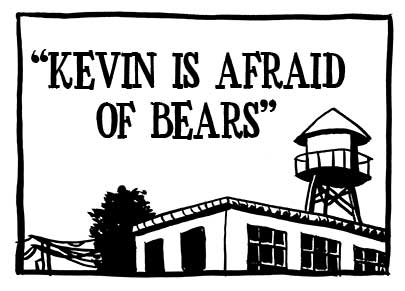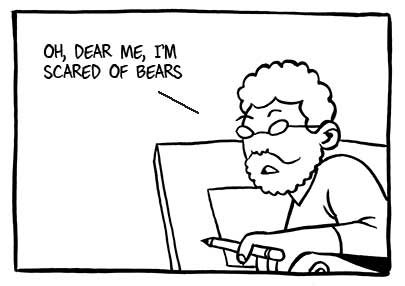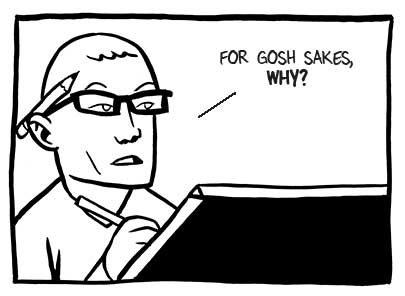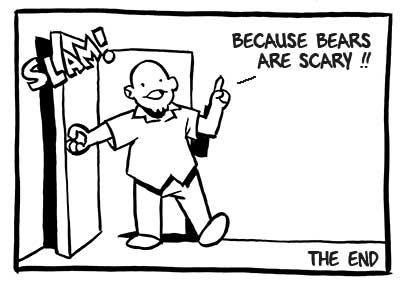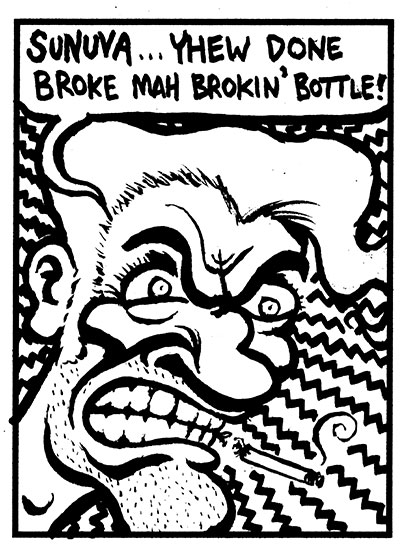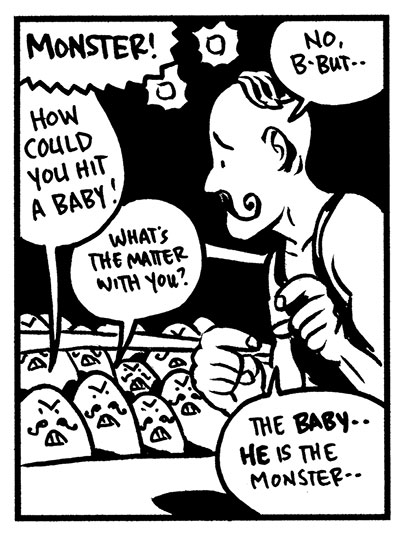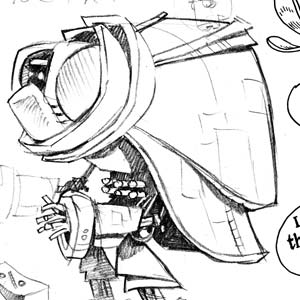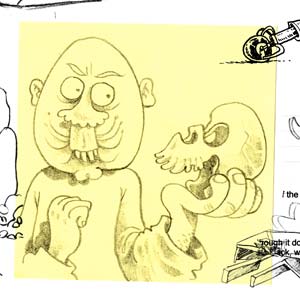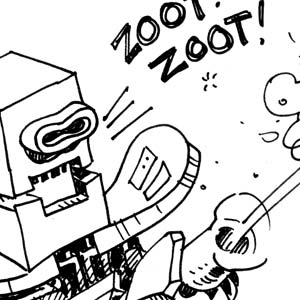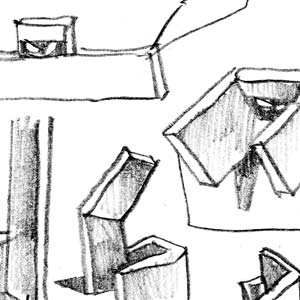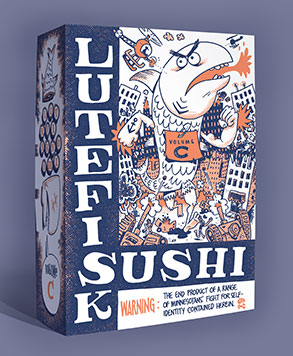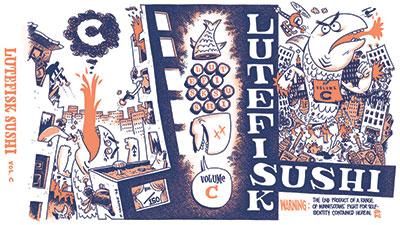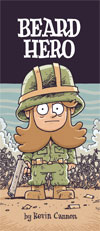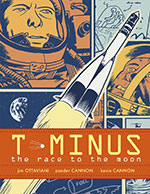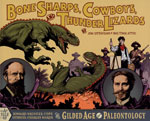Boredom and Laziness: Your Friends for an Improved Aesthetic.They may seem like an unpleasant state of being and a negative character trait, respectively, but boredom and laziness and the forces behind them play a valuable role in an artist's growth. No, really!

Any time you ask people how to get better at any artistic discipline, they always hit you with the old "practice, practice, practice" saw horse. By the time someone has been told that ten times, they think, "yeah, yeah, I'll do that," and no longer hear that suggestion at all. They want to hear something interesting. I mean, practicing is BORING.
That's exactly why it's useful. Whenever you figure out how to do something logically, you are doing every single step and putting in every single line, and your drawing may look okay, but your overly-thought-out process is going to show in the drawing's stiffness, its tentative line, and its overall lack of confidence. Now, he next time you draw it, you might look ahead a couple steps and say, "Oh, those three lines could be smoothed out to be one long line" and then swoosh! you have one smoother, more dynamic, and more confident line in your drawing. What is that strange feeling that compels you to change your drawing process in order to make it more interesting? Aha, you guessed it: BOREDOM.
Boredom is a powerful force, and so when, instead of fighting against it, you leverage it and use its strength, you take some of the pressure off of your conscious mind. Forcing yourself into a situation in which you have two options-- be bored or create something interesting-- can result in some great ideas, drawings, stories, or what have you.

The other natural habit that practice makes use of is laziness. You may notice that when you see an cartoonist's style evolve over the course of many years, their work tends to take on a smoother, simpler quality. The early work tends to have a lot of wasted lines and extraneous detail that is dropped out once the artist gets a sense for exactly what is needed and what is not. Is he thinking consciously throughout his career, "should I keep this line? Should I simplify this style of rendering?" Almost certainly not. He's LAZY. He's drawing the same things over and over again, and he's getting sick of putting in every last line. He wants these drawings to look just as good, but to involve less work, so he organically developed a way to draw more simply. Our instinct to save ourselves some effort drives us to innovate, and those innovations allow us to spend less time and effort on run-of-the-mill illustrations, and focus our energy on creating something new.
Reinhard Engels, in his
Everyday Systems website, posits that will is weak and habit is strong (he refers to it as the "800-pound mega-gorilla") and so the basis of all of his self-help programs he's created on that site is this: Leverage your willpower to make habit work for you. This works for the mega-gorillas of boredom and laziness, too. Put yourself in a situation where they are the forces that drive you, and you almost can't help but improve.
